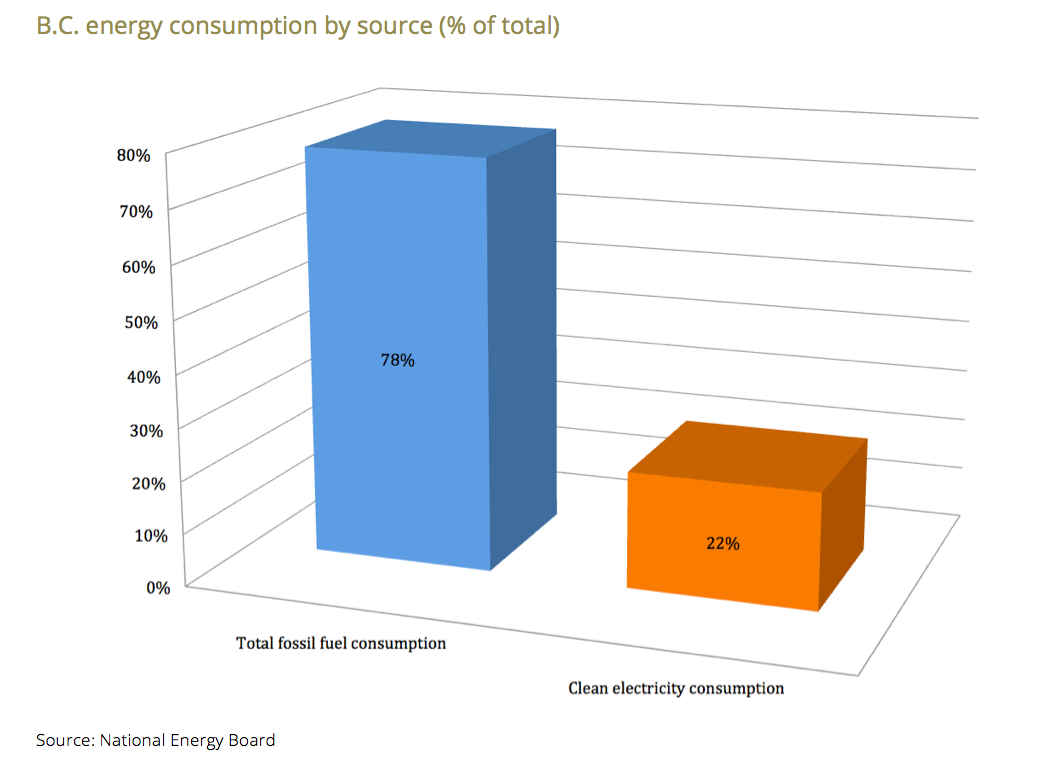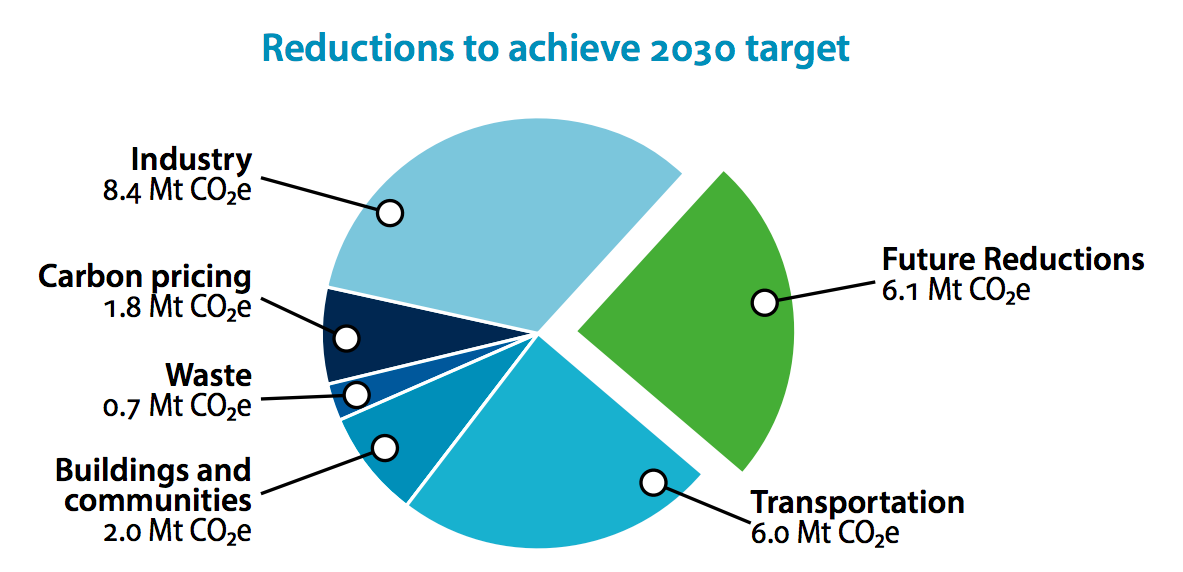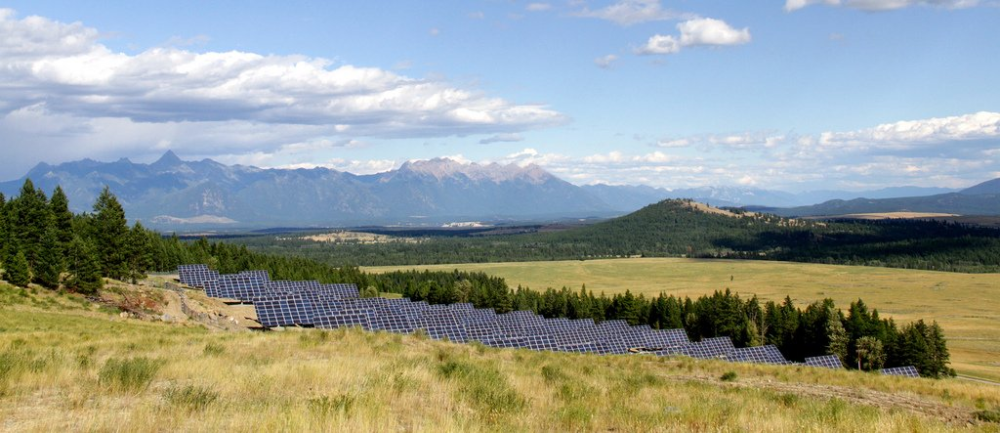Three months ago, the British Columbia government released CleanBC, a new economic strategy aimed at getting us back on track to achieving our province’s climate targets. The plan’s stated objective is to shift B.C. from an economy powered by oil and gas to one increasingly powered by clean energy. This is an ambitious proposition.
Given the importance of this challenge, let’s explore the state of B.C.’s energy system, the changes CleanBC will bring, and what should happen next to achieve the transition necessary to reduce carbon pollution in line with B.C.’s goals and build a strong clean economy.
B.C.’s current energy picture
To understand where our energy system needs to evolve, it’s important to understand where we are at right now. While B.C. is a clean electricity powerhouse — more than 98% of our electricity comes from renewable sources — fossil fuels actually satisfy the majority of B.C.’s energy needs. In fact, compared to clean electricity, we use four times the amount of energy from fossil fuels. Oil fuels cars, trucks, ferries, and airplanes. Natural gas heats homes and powers industry.

Energy efficiency can play a catalytic role in the transition away from fossil fuels by lowering the overall energy requirements of B.C.’s economy — and should be a priority. In addition, as we increasingly electrify our economy, we can achieve further efficiency gains. For example, an electric vehicle motor is 85–95% efficient, compared to 20–40% for gasoline and diesel vehicles. Electric heat pumps can be 3–4 times more efficient than gas furnaces.
However, several dynamics present a challenge to reducing our total energy consumption. Not all energy uses have electric alternatives to fossil fuels readily available (e.g. high heat industrial processes, such as smelting and cement production, as well as aviation), preventing the efficiency gains that come with electrification. B.C.’s population is projected to increase to 5.6 million in 2030, a 16% increase from now, and gross domestic product (GDP) is projected to increase by 28% over the same period. Liquefied natural gas (LNG) exports will introduce a new energy-intensive industry to B.C. Lastly, the rebound effect — the tendency to increase energy use when cheaper (cleaner) options exist — often negates much of the benefit of efficiency improvements.
On balance, we expect energy demand in 2030 will be around 15% greater than now. This further compounds the challenge of transitioning away from an energy system dominated by fossil fuels to one primarily composed of clean sources. Clean energy alternatives will need to meet much of the energy demand currently satisfied by fossil fuels, as well as any future incremental increases in demand.
Enter CleanBC
According to government analysis, implementing CleanBC will get us 75% of the way to our 2030 emissions target of a 40% reduction below 2007 levels. This is the first time since the 2008 Climate Action Plan that B.C. has a climate and energy strategy that gets us back on track to meeting our targets. Stalling of policy implementation and strengthening ultimately undermined the 2008 plan and resulted in B.C. being off-track on its 2020 target.

Initial government projections suggest that clean energy consumption will increase by around 40% by 2030, while fossil fuel use will decrease by around 15%. Fossil fuels will still account for the majority of B.C.’s energy consumption in 2030 under this plan, but the expected progress in reducing emissions and scaling up clean energy alternatives in just over a decade is a challenge not to be underestimated.
CleanBC plans to achieve this transformation by addressing most sources of emissions and applying a variety of tools to reduce them. The strategy takes advantage of our clean electricity system to further electrify key parts of our economy, while seeking to reduce the carbon intensity of our liquid and gaseous fuel sources by requiring higher renewable fuel contents. It also focuses on energy efficiency improvements and reductions in process and other non-energy related emissions to achieve this transition.
The benefits of this broad-based approach cannot be overstated. It increases the total supply of low carbon energy solutions available and maintains a diverse energy system that is well suited to meet the specific needs of various activities, ensuring that all sectors of B.C.’s economy can prosper in the low carbon future. It reduces costs by allowing development of the highest quality resources of a number of different energy sources and solutions. Lastly, it increases resiliency of our climate response.
Powering forward
Realizing CleanBC’s aim of materially transforming how we power our economy in just over a decade will require a rapid build out of a variety of clean energy alternatives that reduce carbon pollution by 19 megatonnes (Mt) across all sectors of B.C.’s economy. Even more clean energy development will be needed to achieve the remaining 6 Mt of emissions reductions to our 2030 target. To improve our chances of achieving this, we need to:
- Move quickly to develop key supporting infrastructure, and identify funding mechanisms and increase investment in such infrastructure
- Update B.C. utilities’ mandates to actively support B.C.’s transition to a clean energy system
- Update and strengthen regulations and policies that affect how we use and produce energy as necessary to keep us on track to our targets
- Increase support for research and development to help solve remaining challenges in hard-to-decarbonize sectors
Completing the transition to a clean energy economy is not an easy task, but it is one that B.C. is uniquely well positioned to take on. In addition to widespread electrification and tremendous renewable electricity potential, B.C. has several other clean energy alternatives available, and a clean tech sector that is providing world-leading solutions to energy system decarbonization. The rewards for success will not just be a more sustainable energy system and a healthier province, but also the many benefits of seizing a once-in-a-generation opportunity to be a leader in a global technology revolution.
On February 28, the Pembina Institute hosts the Clean Future Forum in Vancouver.
This article appeared on National Newswatch.










